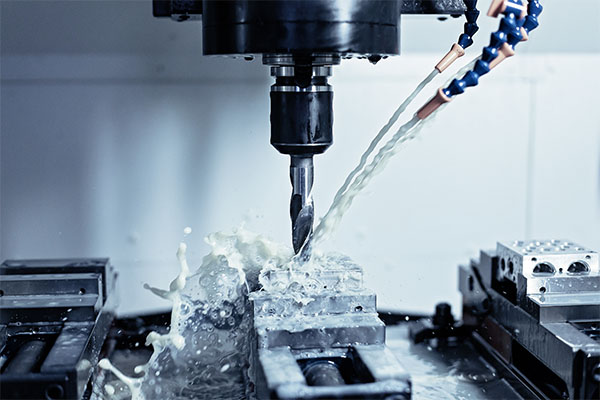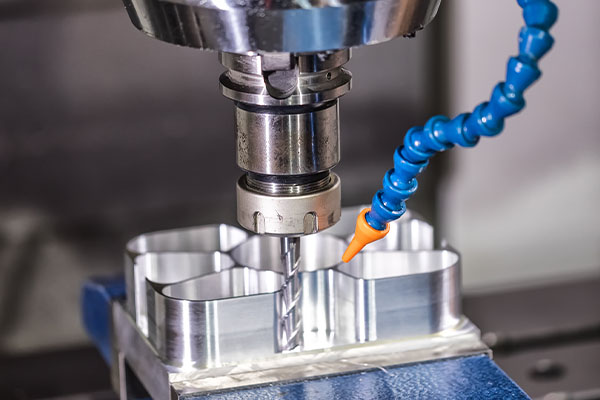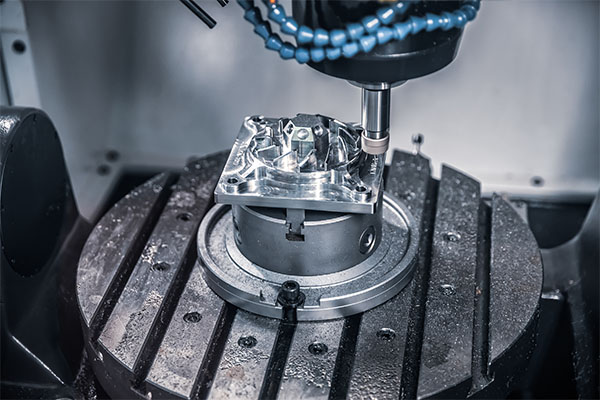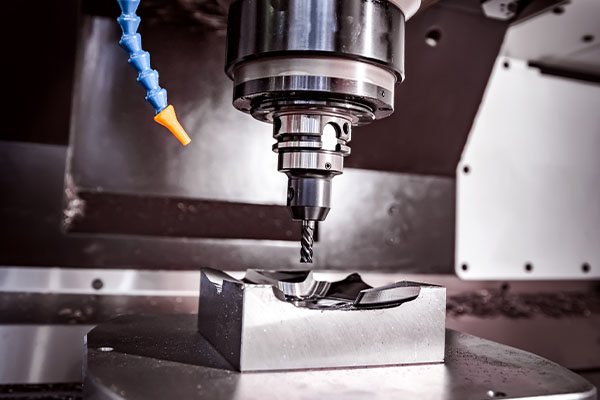Введение
When you’re looking for machining manufacturers, the task can seem daunting. With so many options available, finding the right one can be the difference between a successful project and costly mistakes. In this article, we’ll explore everything you need to know about choosing top machining manufacturers, and how to make the best decision for your project’s needs. From understanding the manufacturing process to comparing different options, we’ve got you covered.

1. What are Machining Manufacturers?
Machining manufacturers are specialized companies that use machinery, such as CNC machines, lathes, and mills, to create parts and components from raw materials. These manufacturers are crucial players in a variety of industries, including automotive, aerospace, electronics, and medical devices. The precision they offer ensures that parts fit together perfectly, which is essential for both functional and safety-critical applications.
Ready for the good part? These manufacturers use advanced technology to ensure high accuracy and repeatability in their processes. For example, a CNC machining manufacturer might produce a batch of identical components with minimal human intervention, making it possible to achieve complex geometries and tight tolerances that are essential in high-end industries like aerospace.
Furthermore, the manufacturers you choose will depend on what type of machining services you need. For instance, some machining manufacturers specialize in high-volume production runs, while others might focus on custom or low-volume machining. The right choice for your project will vary depending on factors such as the material requirements, production volume, and the desired timeline.
The importance of machining manufacturers cannot be overstated—without them, the entire process of turning raw materials into functional parts would not be possible. They bridge the gap between design and production, ensuring that everything is made to specification. This is why choosing the right machining manufacturer is so critical.
| Type of Manufacturer | Specialization | Common Industries |
|---|---|---|
| Обработка на станках с ЧПУ | Precision parts | Аэрокосмическая промышленность, автомобилестроение |
| Литье под давлением | High-volume production | Электроника, Медицина |
| Casting | Complex geometries | Aerospace, Industrial |
2. Why Should You Choose a Reliable Machining Manufacturer?
Choosing a reliable machining manufacturer is crucial for the success of your project. But here’s the kicker—reliability doesn’t just mean delivering the parts on time. It encompasses the overall quality of the product, the adherence to design specifications, and the ability to handle complex projects. A reliable machining manufacturer ensures that each step of the production process is meticulously controlled and executed.
What’s the real story? A manufacturer’s reliability is built on consistency. It means that when you choose a machining manufacturer, you can expect the same high-quality output every single time, no matter how many units you need. This is important for industries where precision and quality control are paramount, like the aerospace and medical sectors. For example, when creating parts for an aircraft engine, the smallest deviation in manufacturing can lead to serious issues.
Another key reason to choose a reliable machining manufacturer is their ability to meet deadlines. In industries where time-to-market is crucial, any delay in the production of parts can affect the entire supply chain. This is why selecting a manufacturer that can reliably stick to timelines is just as important as quality assurance. A good manufacturer should not only meet but exceed your expectations when it comes to meeting deadlines.
| Reason for Choosing Reliability | Важность |
|---|---|
| Consistency in Quality | Ensures precision and minimizes defects |
| Timely Delivery | Reduces project delays and supply chain disruptions |
| Flexibility and Support | Adapts to changes and offers guidance throughout production |
3. How Do Machining Manufacturers Operate?
Machining manufacturers operate using a variety of machines and tools that are controlled either manually or by computer systems. These machines are designed to perform specific tasks, such as cutting, shaping, and finishing materials to create precision components. The process typically begins with a design, followed by selecting the material and then machining it to the desired specifications.
Here’s where it gets interesting: modern machining manufacturers rely heavily on Computer Numerical Control (CNC) machines to automate the manufacturing process. CNC machining allows for high levels of automation, precision, and repeatability. This is achieved by programming the machines to follow precise instructions from a computer, which ensures that each part is made exactly the same every time. CNC machining can be used for a wide range of processes, including milling, turning, and drilling, making it highly versatile.
But the magic doesn’t stop there. The real power of machining manufacturers lies in their ability to handle complex geometries and materials. Whether you’re working with metals like steel or aluminum, or more specialized materials like titanium or composites, machining manufacturers can adapt their processes to meet specific material requirements. This ensures that the final product is not only functional but also durable and capable of withstanding demanding environments.
| Процесс обработки | Описание | Common Materials Used |
|---|---|---|
| Фрезерование с ЧПУ | Computer-controlled cutting | Metals, Plastics, Composites |
| Токарная обработка с ЧПУ | Rotating workpiece against cutting tools | Metals, Alloys |
| Бурение | Making holes in materials | Metals, Plastics |
4. What Are the Key Services Provided by Machining Manufacturers?
Machining manufacturers offer a variety of services to meet the diverse needs of their clients. The most common services provided include CNC machining, precision turning, milling, and drilling. However, the scope of services can vary significantly between manufacturers, depending on their specialization and the capabilities of their equipment.
What’s the real value here? The key to selecting the right machining manufacturer lies in their ability to offer customized services that suit your project’s specific needs. Some manufacturers specialize in high-volume production, while others focus on custom, low-volume runs. For instance, if you need a small batch of highly specialized components, you’ll need a manufacturer that offers custom machining services rather than mass production.
Ready for the good part? The ability to choose from a wide range of services also means that machining manufacturers can adapt their processes to different industries. For example, the medical industry may require extremely tight tolerances and high-quality materials, while the automotive industry may require high-volume, cost-effective production. This adaptability makes machining manufacturers incredibly valuable across a broad spectrum of applications.
| Service Type | Описание | Industries Served |
|---|---|---|
| Обработка на станках с ЧПУ | Precision cutting and shaping | Аэрокосмическая промышленность, автомобилестроение |
| Precision Turning | High-accuracy turning for complex shapes | Medical, Electronics |
| Low-Volume Production | Custom parts for small batches | Medical, Custom Products |
5. How Do I Find the Best Machining Manufacturer for My Needs?
Finding the best machining manufacturer for your needs can be a challenging task, but don’t worry—we’ve got you covered. The first step is to clearly define your project requirements. What type of parts are you manufacturing? What materials will be used? Do you need a high-volume manufacturer or someone who can handle small, custom batches?
This is where it gets interesting: once you have a clear understanding of your needs, you can start your search by researching manufacturers that specialize in your industry or product type. Begin by looking at their capabilities, including the machinery they use and their experience in handling similar projects. A manufacturer with experience in your specific field will have a better understanding of your requirements and can provide valuable insights.
What’s next? Always check the reputation of the machining manufacturer. Look for reviews, ask for references, and seek out case studies that demonstrate the manufacturer’s ability to meet deadlines and quality standards. Once you’ve narrowed down your options, it’s time to reach out for quotes. Be sure to request detailed information about their services, pricing, and timelines so that you can make an informed decision.
| Фактор | Важность | How to Evaluate |
|---|---|---|
| Manufacturer Experience | Ensures familiarity with your project type | Look for industry-specific expertise |
| Reputation | Reflects reliability and quality | Check online reviews, ask for references |
| Возможности | Determines if the manufacturer can meet your needs | Review their machinery, skills, and services |

6. What Are the Benefits of Working with a Machining Manufacturer?
Working with a machining manufacturer brings numerous benefits. But here’s the kicker: the most obvious benefit is precision. Whether you’re producing parts for the aerospace, medical, or automotive industry, machining manufacturers can create components with extremely tight tolerances, ensuring that everything fits perfectly. This level of precision is not only important for functionality but also for safety and durability.
Another significant benefit is cost-efficiency. Machining manufacturers, particularly those that specialize in high-volume production, can help reduce unit costs by streamlining the manufacturing process. Additionally, they have the tools and expertise to optimize material usage, reducing waste and ensuring that you get the most out of your raw materials.
But it doesn’t stop there. A reliable machining manufacturer can also provide technical support and guidance throughout the entire process. They’ll work with you to understand your design requirements, suggest improvements, and ensure that your project meets industry standards.
| Выгода | Описание | Impact on Projects |
|---|---|---|
| Точность | High-quality, tight tolerances | Essential for safety-critical industries |
| Cost-Efficiency | Reduced production costs | Helps keep projects within budget |
| Technical Support | Expert guidance and advice | Improves overall project quality |
7. How Can I Compare Different Machining Manufacturers?
Comparing machining manufacturers can feel overwhelming, but by focusing on a few key factors, you can streamline the process. Start by looking at the range of services they offer. Do they specialize in CNC machining, or do they also offer other services like injection molding or casting?
What’s the real value? Look closely at their experience and expertise in handling projects like yours. Ask for examples of previous work, and see if they have case studies or testimonials that demonstrate their success in similar projects. You should also evaluate their equipment and technology to ensure they have the right tools for your needs.
Once you’ve done that, it’s time to compare prices. But here’s the kicker—don’t just choose the cheapest option. Evaluate the value you’re getting for the price. A slightly higher price might be worth it if the manufacturer offers higher precision, faster turnaround times, or better support.
| Comparison Factor | На что обратить внимание | How to Evaluate |
|---|---|---|
| Range of Services | CNC machining, casting, molding | Ensure they offer the services you need |
| Experience and Expertise | Specialized knowledge in your industry | Ask for case studies, testimonials |
| Ценообразование | Balance between cost and quality | Don’t just focus on price—evaluate overall value |
8. What Factors Should Be Considered Before Choosing a Machining Manufacturer?
Before choosing a machining manufacturer, it’s essential to consider several factors that could significantly impact the success of your project. These factors include the manufacturer’s location, experience, and production capacity. Location is particularly important for reducing shipping costs and lead times. Working with a manufacturer that’s close to your operation can save both time and money.
Another key factor is the manufacturer’s ability to scale. Can they handle small batches, or are they better suited for large production runs? The size and scope of your project will determine the type of manufacturer you need. A manufacturer with a large production capacity may be ideal for high-volume projects, while a smaller, more specialized manufacturer may be better for custom or low-volume work.
Ready for the good part? Don’t overlook quality assurance. Ensure the manufacturer follows industry-standard certifications like ISO 9001 and has a robust quality control system in place. This guarantees that the final product meets all specifications and industry standards.
| Фактор | Что следует учитывать | Impact on Project |
|---|---|---|
| Location | Proximity to your operation | Reduces shipping costs and lead time |
| Production Capacity | Ability to scale with your project | Ensures the manufacturer can meet your needs |
| Quality Assurance | Industry certifications and testing protocols | Ensures high standards and compliance |
9. What Are the Common Mistakes to Avoid When Choosing a Machining Manufacturer?
Choosing the wrong machining manufacturer can lead to costly mistakes, delays, and poor-quality products. So, what should you avoid? First, don’t just look at price. Many buyers fall into the trap of choosing the cheapest option, only to find that the manufacturer cuts corners on quality or fails to meet deadlines.
Next, avoid overlooking customer support. A machining manufacturer with poor communication can cause serious delays and misunderstandings. It’s crucial to work with a company that provides clear, regular updates throughout the production process.
What’s the real story here? Another mistake is not considering the long-term relationship. If you plan to continue working with the manufacturer on future projects, make sure their operations, capabilities, and customer service align with your business goals. A short-term win might not be worth the hassle down the line.
| Ошибка | What to Avoid | Impact on Project |
|---|---|---|
| Focusing Only on Price | Choosing based on price alone | May lead to poor quality or missed deadlines |
| Poor Customer Support | Ignoring communication issues | Causes delays and misunderstandings |
| Ignoring Long-Term Relationships | Not considering future needs | May hinder long-term success and growth |

10. How Do Machining Manufacturers Ensure Quality Control?
Quality control is a fundamental part of any machining manufacturer’s operations. Here’s where it gets interesting: manufacturers that adhere to strict quality assurance protocols can ensure the highest standards of precision and consistency. This starts with raw material selection, where only the best materials are used for production.
What’s the kicker? The quality control process doesn’t end once the parts are made. Machining manufacturers employ rigorous inspection methods, including visual checks, measurement tools, and testing procedures to ensure that every component meets the required specifications. Advanced manufacturers might even use coordinate measuring machines (CMM) to check the accuracy of parts down to the micron level.
Ready for the good part? Certifications like ISO 9001 ensure that the manufacturer follows internationally recognized quality management standards. This certification is a strong indication that the manufacturer takes quality seriously and invests in continuous improvement.
| Quality Control Measure | Цель | Industry Standards |
|---|---|---|
| Visual Inspection | Check for defects or imperfections | Ensures aesthetic and functional quality |
| Measurement Tools | Verify part dimensions | Ensures tight tolerances |
| Coordinate Measuring Machine | Highly accurate measurement | Ideal for critical, high-precision parts |
11. How Can a Machining Manufacturer Improve My Project’s Efficiency?
Efficiency is a critical factor in any manufacturing project. Machining manufacturers can enhance your project’s efficiency in a variety of ways. First, by utilizing advanced technologies like CNC machining, they can produce parts faster and with greater precision. This means less time spent on rework or adjustments, ultimately speeding up the overall production process.
What’s the real value? Machining manufacturers also streamline the entire workflow. From material sourcing to final inspection, every step is optimized to minimize waste and reduce downtime. This allows them to offer faster turnaround times without compromising on quality.
Ready for the good part? Many machining manufacturers also offer process optimization services, where they analyze your project and recommend ways to improve efficiency. Whether it’s through design adjustments, material selection, or manufacturing techniques, these improvements can make a huge difference in both cost and time.
| Efficiency Measure | How It Helps | Impact on Project |
|---|---|---|
| Обработка на станках с ЧПУ | Reduces production time | Faster delivery, higher accuracy |
| Workflow Optimization | Streamlines production steps | Minimizes delays, reduces costs |
| Process Recommendations | Improves design and materials | Increases overall project efficiency |
12. How Can I Establish a Strong Relationship with My Machining Manufacturer?
Building a strong relationship with your machining manufacturer is crucial for long-term success. It starts with clear and open communication. By setting expectations and discussing project requirements upfront, you can ensure that both parties are on the same page.
What’s the kicker? Don’t just communicate at the beginning and end of the project—stay engaged throughout the entire process. Regular check-ins and updates can help identify potential issues early and prevent misunderstandings. Additionally, showing appreciation for the manufacturer’s work can go a long way in fostering a positive and productive relationship.
Ready for the good part? A long-term relationship with a machining manufacturer can also lead to cost savings. Manufacturers often offer better pricing, faster turnaround times, and more flexibility to loyal customers. This means that both parties benefit from a partnership built on trust and mutual success.
| Relationship Building Tip | How to Implement It | Benefits to Your Project |
|---|---|---|
| Clear Communication | Set expectations and provide regular updates | Reduces misunderstandings, prevents issues |
| Consistent Engagement | Stay involved throughout the project | Ensures the project stays on track |
| Show Appreciation | Recognize good work and maintain rapport | Builds trust and encourages loyalty |
13. What Are the Latest Trends in Machining Manufacturing?
Machining manufacturing is constantly evolving, and staying on top of the latest trends is essential for ensuring the best results. One of the most significant trends today is automation. Thanks to advancements in robotics and AI, manufacturers can now automate many aspects of the machining process, increasing speed, reducing human error, and enhancing precision.
What’s the kicker? Another trend is the increased use of additive manufacturing techniques, such as 3D printing, which allows manufacturers to create highly complex parts in less time. These methods are especially useful for low-volume, high-complexity projects where traditional machining may be too expensive or time-consuming.
Ready for the good part? Sustainability is also becoming a big focus in machining manufacturing. Manufacturers are looking for ways to reduce waste, improve energy efficiency, and use environmentally friendly materials. This trend is not only beneficial for the planet but can also help manufacturers reduce operating costs.
| Тенденция | Описание | Impact on Industry |
|---|---|---|
| Автоматизация | Use of robots and AI | Increases efficiency, reduces errors |
| Additive Manufacturing | 3D printing for complex parts | Reduces time and cost for complex designs |
| Sustainability | Eco-friendly practices | Reduces waste, lowers costs |
14. How Does Machining Manufacturing Affect the Global Supply Chain?
Machining manufacturing plays a pivotal role in the global supply chain, particularly in industries like aerospace, automotive, and electronics. Machining manufacturers are responsible for producing the components that make up the final products that consumers use every day. The efficiency and reliability of these manufacturers directly impact the speed and cost of the supply chain.
But here’s the kicker—any disruptions in machining manufacturing can have a ripple effect across the entire supply chain. For example, delays in the production of critical components can halt the production of finished products, leading to shortages and price increases.
What’s the real story here? One of the most significant factors that affect the supply chain is lead time. If machining manufacturers cannot meet deadlines or fulfill orders on time, the consequences are felt throughout the entire supply chain, from suppliers to retailers.
| Supply Chain Factor | Impact on Global Trade | How to Manage |
|---|---|---|
| Lead Time | Affects delivery schedules | Work with reliable manufacturers |
| Disruptions | Can halt production lines | Diversify suppliers and manufacturers |
| Cost of Components | Affects pricing of finished goods | Optimize supply chain management |
15. What Are the Future Prospects for the Machining Manufacturing Industry?
The future of machining manufacturing looks bright, with continued advancements in technology and an ever-increasing demand for precision components. One area of growth is the development of more efficient machinery. With improvements in CNC machines and other manufacturing technologies, machining manufacturers can produce parts faster and with even greater accuracy.
What’s the kicker? The integration of data analytics and the Internet of Things (IoT) is also poised to revolutionize the industry. By connecting machines to the internet, manufacturers can gather real-time data on performance and use that data to optimize production. This leads to more efficient workflows and a reduction in downtime.
Ready for the good part? The increasing focus on sustainability will also drive the future of machining manufacturing. As more companies demand eco-friendly solutions, manufacturers are investing in greener technologies, which will ultimately shape the industry’s growth.
| Future Trend | Описание | Industry Impact |
|---|---|---|
| Advanced Machinery | Improved CNC and robotics | Faster production, higher accuracy |
| IoT Integration | Data-driven optimization | Reduces downtime, improves efficiency |
| Sustainability Practices | Eco-friendly manufacturing | Reduces waste, lowers costs |
Заключение
In conclusion, choosing the right machining manufacturer is a decision that should be made with careful consideration. By understanding the various services, quality control methods, and trends in the industry, you can make an informed decision that will benefit your project in the long run. Whether you need high precision or quick turnaround, working with a reliable machining manufacturer is crucial for success. So, do your research, ask the right questions, and choose a partner that aligns with your project’s goals.

Раздел часто задаваемых вопросов
В1: What is a machining manufacturer?
A machining manufacturer is a company that uses machinery, such as CNC machines, lathes, and mills, to produce precision parts and components for various industries.
В2: Как работает обработка на станках с ЧПУ?
CNC machining involves using computer-controlled machines to cut, shape, and finish materials with high precision, ensuring repeatability and accuracy for complex parts.
В3: Why is it important to choose a reliable machining manufacturer?
Choosing a reliable machining manufacturer ensures that your project meets quality standards, is completed on time, and stays within budget.
В4: What certifications should a machining manufacturer have?
Look for certifications such as ISO 9001, which indicates adherence to international quality management standards, and other industry-specific certifications like AS9100 for aerospace.
В5: How can I ensure quality control when working with a machining manufacturer?
Ensure quality control by checking if the manufacturer follows industry standards, uses advanced inspection tools, and has a robust quality assurance process in place.

